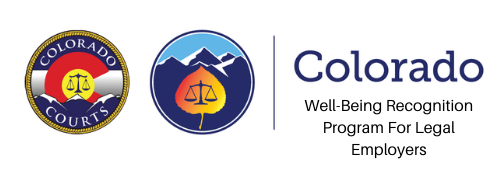
Foster Competence by Developing and Supporting Programs for Substantive Development and Mentoring
Why implement a professional development training program at your legal organization? To keep your clients happy you must teach your lawyers and staff how to serve them. To keep your lawyers happy, engaged, and thriving you must teach them how to do their jobs successfully.
Teach them how to write, advocate, and negotiate. Teach them the business of law, how to market, and how to interact with clients. Teach them your expectations, your organizational culture, your beliefs, and your values.
Create a program that teaches them how to excel as attorneys so they can provide your clients the best representation and service possible. No matter how talented, how bright, or how experienced your lawyers are, you still need to shape them into your type of attorneys representing clients according to your brand of representation and advocacy.
In study after study, millennials report that they want a meaningful and fulfilling career that makes a difference in the world. For example, three-quarters of millennials say that “it is more important to enjoy their work than to make a lot of money.” In a recent PWC Millennials at Work survey, personal learning and development was millennial employees’ first choice benefit.
Consequently, legal employers must focus on the “experience of practicing law.” For starters, legal employers can promote collegiality and collaboration at their legal organizations through mentoring and shared professional development experiences. Furthermore, legal employers can inspire consistent and committed hard work and effort by refocusing on investing in their lawyers and staff.
These professional development opportunities are also an increasingly important aspect of succession planning. By investing in its future leaders, legal organizations will ensure that employees have the right skills to match the organization’s growing needs and empower them to drive their own career advancements.
Investing in professional development creates a sense of belonging in lawyers which can improve your organization’s recruitment of talent and, more importantly, retention of that talent. When an attorney leaves a firm, the cost to the firm ranges from $400,000 to more than $800,000 (for experienced attorneys). Turn over cost in the legal industry average roughly $9.1 billion annually. The value proposition of professional development is easily found in the potential savings on lawyer attrition.
Finally, investments in professional development also decrease the risk of legal malpractice claims and attorney discipline. Teaching lawyers how to do their jobs effectively and efficiently will have significant preventive benefits to your organization’s bottom line.
For more information regarding best practices of effective legal professional development programs consider the following resources:
- Training Your Law Firm Associates, DRI (2017).
- Jill Switzer, Millennial Lawyers Need Mentors, But The Legal Profession Is Slacking, Above the Law, May 2, 2018.
- Jonathan White, Self-Assessment Program Aims to Enhance Lawyer Competency and Client Satisfaction, Colorado Lawyer, Oct. 2017.
- Jordan Furlong, Professional Development for the Future Law Firm, PD Quarterly, Nov. 2017.
- Sarah Kellogg, The Professional Development Imperative: Ongoing Training Keeps New Lawyers Invested, Washington Lawyer, July/August 2015.
Recommendations:
| Action | Challenge Level |
|---|---|
| 1. Complete the Colorado Lawyer Self-Assessment or incorporate the Self-Assessment into your organization’s professional development/training program. | Easy |
| 2. Create an effective and sustainable internal mentoring and sponsorship program that addresses and promotes the growth and development of junior lawyers. A sustainable internal mentoring program will provide a sense of certainty that: · They are on the road to a rewarding career. · They are part of a team with more-experienced lawyers always available for consultation and advice. · Their work is important. · They will receive constructive feedback. · Their professional development and individual career goals are important and supported by the organization. One approach is to use the Colorado Attorney Mentoring Program to assist in developing these programs or improving current internal mentoring and sponsorship programs. Visit www.coloradomentoring.org for more information on the CAMP program. | Easy – Moderate |
| 3. Create an effective and sustainable “reverse mentoring” program where senior lawyers are paired with junior lawyer mentors to: · Close the knowledge gaps. · Empower emerging leaders. · Bring generations together. One approach is to use the Colorado Attorney Mentoring Program to assist in developing these programs or improving current internal mentoring and sponsorship programs. Visit www.coloradomentoring.org for more information on the CAMP program. | Easy – Moderate |
| 4. Create or redesign a professional development program that is available to all lawyers and staff members. Incorporate all or a portion of the following best practices and characteristics: a. The program is strongly supported and driven by the leadership of the organization. b. The program incentivizes lawyers and staff to participate either as students or as faculty members. For example, elements of an organization’s compensation system could reward a lawyer’s active participation in professional development programming. c. The program is targeted at all of the staff and lawyers in the organization, not just new or young lawyers. d. The program is designed to deliver appropriate levels of training at different stages of a lawyer’s career. e. The program covers “soft skills” as well as technical legal skills. For instance, topics such as leadership, business development, client relationship management, supervision, teamwork, communications, and the like. f. The program links formal training with on-the-job learning through coordination of assignments, mentoring, and otherwise g. The program incorporates highly interactive teaching methods. | Moderate |
| 5. Implement work assignment systems that ensure equal access to challenging work and key clients. · Create an assignment system that gives lawyers opportunities to develop expertise and to work with colleagues at all levels of influence. · Incentivize senior lawyers to choose different junior lawyers for different projects. · Monitor every lawyers’ work experience. · Ensure women and traditionally underrepresented lawyers have the same opportunities to work on quality and challenging projects with senior lawyers. | Moderate |
| 6. Create Tailored Professional Development Plans Collaborate with employees to design individualized development plans, aligning training opportunities, certifications, or stretch assignments with their career goals. This encourages focused growth and ensures employees gain the specific skills needed to excel in their roles and advance their careers. | Moderate |
| 7. Create a meaningful and equitable evaluation system. · Provide ongoing and timely feedback to lawyers and staff so they can improve their skills. · Incorporate evaluee-driven professional goal-setting into the evaluation process, to include goals related to client work as well as other professional and civic activities. · Focus on creating dynamic evaluations with substantive, meaningful feedback to provide lawyers and staff members with direction regarding career advancement. | Moderate-Challenging |
| 8. Ensure equal access to your organization’s formal and informal professional development opportunities and mentoring opportunities for women and traditionally underrepresented lawyers and staff. One approach is to engage in training on topics such as: · Implicit bias. · Institutional barriers to inclusion. · Best practices for creating inclusive legal organizations. | Moderate – Challenging |
Real World Examples from Pledge Participants:
- For attorneys, we offer a suite of Professional Development resources to associates to foster competence. Some of these resources include formal trainings, experiential learning, integration, and onboarding initiatives (together with one-on-one mentoring and group mentoring programs), and seniority-based retreats. These resources are developed and supported by members of the firm’s Professional Development team, Career Development & Advancement team, and a Professional Development Committee, which is comprised of partners and counsel from across the firm’s offices and practice group areas.
- Building out a Learning Management System that provides a robust library of on demand workshops for our attorneys, consisting of both internal and external trainings on substantive legal skills and broad-based professional skills.
- For professional staff, offer professional development via LinkedIn Learning, with over 8,000 courses/programs and certificates available, and other targeted programs as well as a robust mentoring program for professional staff and several affinity groups focused on professional staff.
- The firm recently launched a firm specific University, a training and development hub that provides a robust library of on demand workshops for our attorneys via both internal and external trainings on substantive legal skills and broad-based professional skills.
- Offer a robust mentoring program for attorneys, which includes one-on-one mentor pairings in addition to group mentoring. Group mentoring programs have a schedule of topics designed to enhance associate competence in a number of professional skill areas. One-on-one mentoring pairings are built around associate preferences, providing an opportunity to connect with a mentor who can help the mentee with their specific goals.
